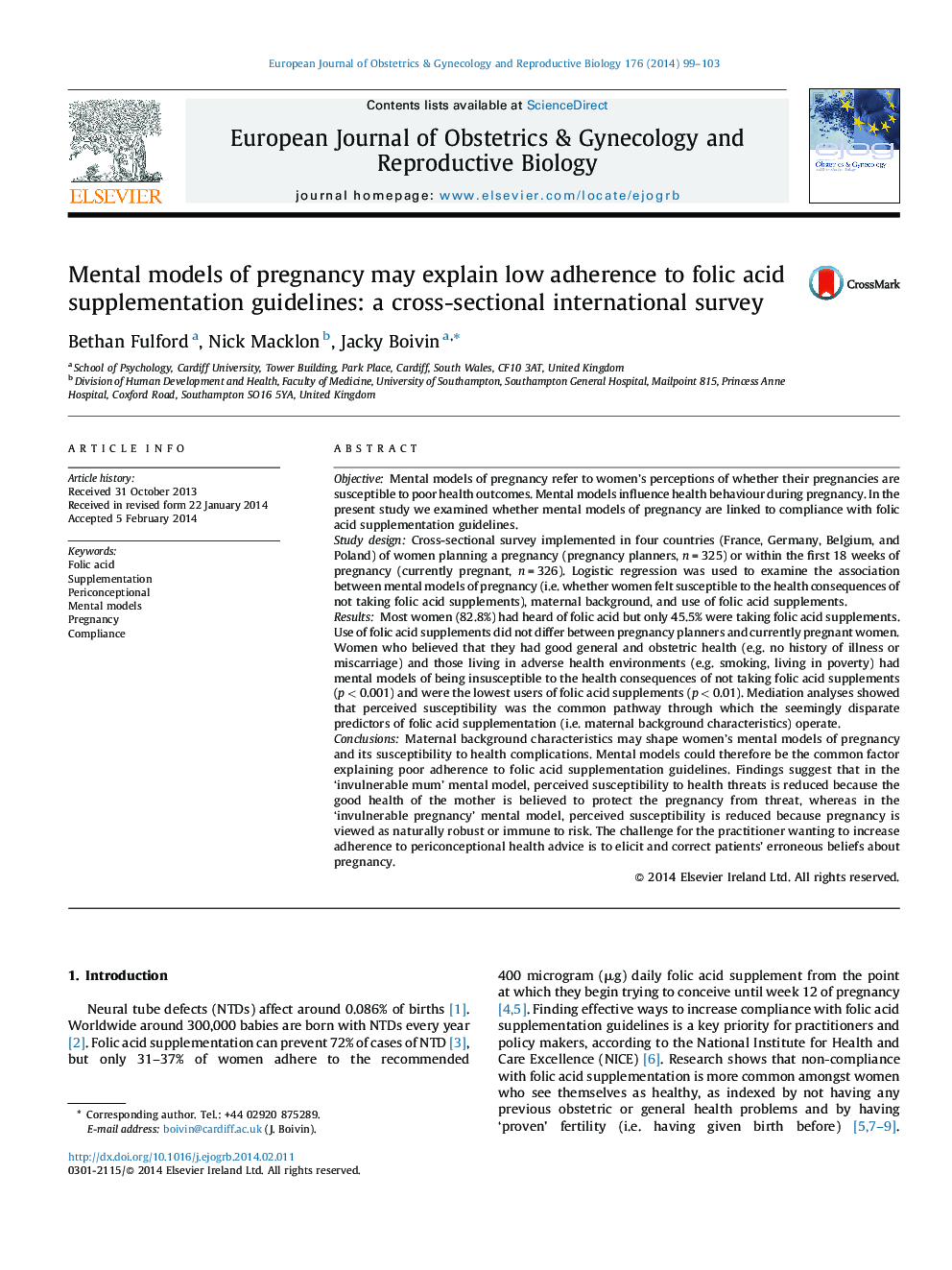| کد مقاله | کد نشریه | سال انتشار | مقاله انگلیسی | نسخه تمام متن |
|---|---|---|---|---|
| 3920074 | 1599805 | 2014 | 5 صفحه PDF | دانلود رایگان |
ObjectiveMental models of pregnancy refer to women's perceptions of whether their pregnancies are susceptible to poor health outcomes. Mental models influence health behaviour during pregnancy. In the present study we examined whether mental models of pregnancy are linked to compliance with folic acid supplementation guidelines.Study designCross-sectional survey implemented in four countries (France, Germany, Belgium, and Poland) of women planning a pregnancy (pregnancy planners, n = 325) or within the first 18 weeks of pregnancy (currently pregnant, n = 326). Logistic regression was used to examine the association between mental models of pregnancy (i.e. whether women felt susceptible to the health consequences of not taking folic acid supplements), maternal background, and use of folic acid supplements.ResultsMost women (82.8%) had heard of folic acid but only 45.5% were taking folic acid supplements. Use of folic acid supplements did not differ between pregnancy planners and currently pregnant women. Women who believed that they had good general and obstetric health (e.g. no history of illness or miscarriage) and those living in adverse health environments (e.g. smoking, living in poverty) had mental models of being insusceptible to the health consequences of not taking folic acid supplements (p < 0.001) and were the lowest users of folic acid supplements (p < 0.01). Mediation analyses showed that perceived susceptibility was the common pathway through which the seemingly disparate predictors of folic acid supplementation (i.e. maternal background characteristics) operate.ConclusionsMaternal background characteristics may shape women's mental models of pregnancy and its susceptibility to health complications. Mental models could therefore be the common factor explaining poor adherence to folic acid supplementation guidelines. Findings suggest that in the ‘invulnerable mum’ mental model, perceived susceptibility to health threats is reduced because the good health of the mother is believed to protect the pregnancy from threat, whereas in the ‘invulnerable pregnancy’ mental model, perceived susceptibility is reduced because pregnancy is viewed as naturally robust or immune to risk. The challenge for the practitioner wanting to increase adherence to periconceptional health advice is to elicit and correct patients’ erroneous beliefs about pregnancy.
Journal: European Journal of Obstetrics & Gynecology and Reproductive Biology - Volume 176, May 2014, Pages 99–103
